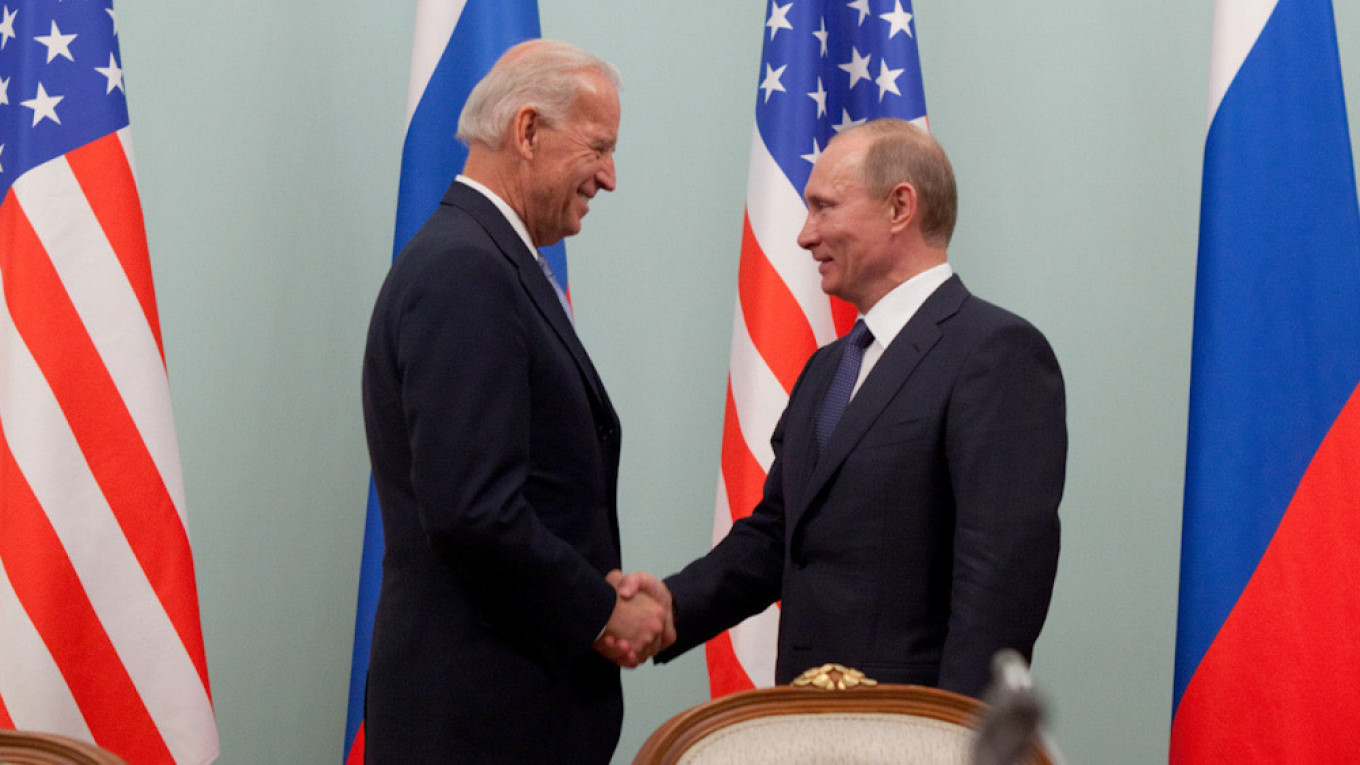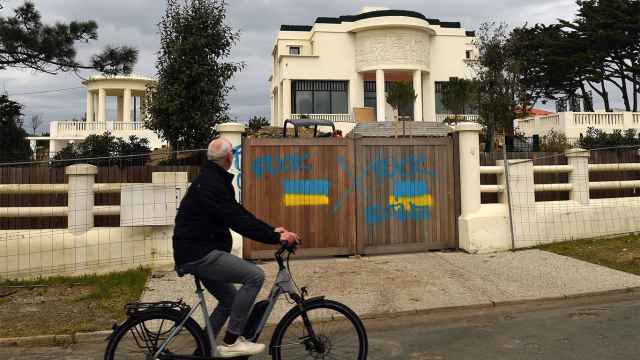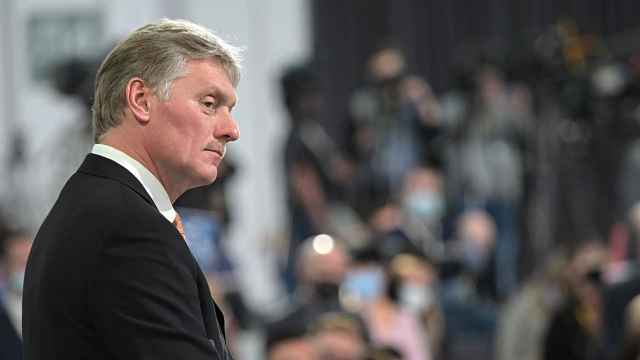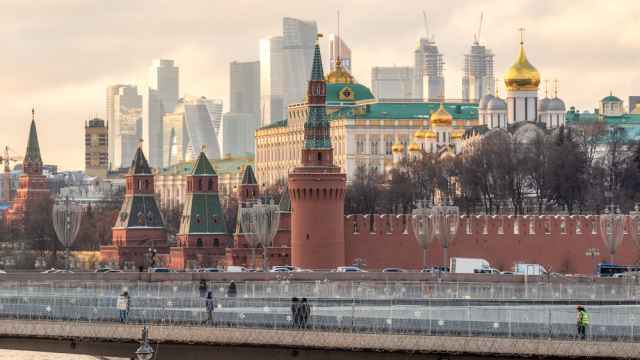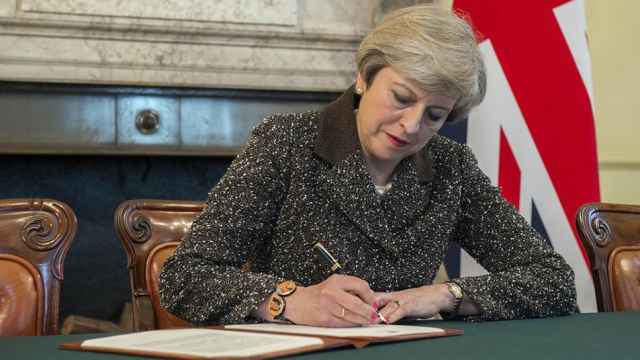The Kremlin said Friday it was "good" that U.S. President Joe Biden was seeking dialogue with his Russian counterpart Vladimir Putin but criticized the United States for a fresh bout of sanctions on Moscow.
Biden's offer earlier this week of a summit between the leaders amounted to a peace offering as tensions between Russia and the West were escalating over the conflict in Ukraine and the new penalties levied by Washington.
Kremlin spokesman Dmitry Peskov on Friday said that Putin has long talked about the importance of normalizing relations between Moscow and Washington.
"He has repeatedly said that we are ready to develop our dialogue to the degree that our counterparts are ready for this," he said.
"It is indeed good that the points of view of the two heads of state coincide on this."
But Peskov also blasted a new round of penalties imposed by Washington on Moscow Thursday, saying America's "addiction for sanctions remains unacceptable."
The Kremlin spokesman noted that Putin last month had suggested that he and Biden hold virtual talks that did not come to fruition as Washington did not respond to the proposal.
He said that the Kremlin was still considering Biden's offer for a summit, as Finnish President Sauli Niinisto on Friday offered his country as a venue for the possible meeting.
Earlier this week Niinisto said he and Putin had spoken and the two discussed "the planned meeting" with Biden.
Tensions have been rising sharply between Washington and Moscow in recent weeks as Russia massed forces on Ukraine's northern and eastern borders, and on the Crimean peninsula it annexed in 2014.
U.S. forces in Europe raised their alert status in response, while NATO issued warnings to Moscow.
Sanctions relief
Despite the call for cooling tensions, Washington on Thursday angered Moscow by imposing a new round of sanctions on Russia for alleged election interference and hacking.
The penalties widened restrictions on U.S. banks trading in Russian government debt, expelled 10 diplomats who include alleged spies and sanctioned 32 individuals accused of meddling in the 2020 U.S. presidential vote.
Biden on Thursday described the sanctions as a "measured and proportionate" response to Moscow's hostile actions with the United States and said Washington is "not looking to kick off a cycle of escalation and conflict."
The Kremlin responded to the penalties on Thursday saying they will not "help" plans for a potential summit.
But analysts say that even though sanctions were the toughest in several years, they do not pose a threat to the Kremlin.
"The Russian market felt some relief," the Renaissance Capital investment bank said in an analyst note Friday, because the sanctions were "moderate."
Sanctions as a tool for punishing Moscow have become routine since 2014, when Russia annexed Crimea and fighting erupted between Kiev's forces and pro-Russia separatists in eastern Ukraine.
Relations have plunged further more recently, with Washington accusing Moscow of interfering in its presidential elections in 2016 and 2020.
This year even before the recent alarm over the Ukraine conflict, tensions had ratcheted up sharply after the United States slapped sanctions on Russia over the poisoning of jailed Kremlin critic Alexei Navalny.
Ties then hit rock bottom last month after Biden, who promised to take a firmer line on Moscow than his predecessor Donald Trump, agreed with a description of Putin as a "killer."
A Message from The Moscow Times:
Dear readers,
We are facing unprecedented challenges. Russia's Prosecutor General's Office has designated The Moscow Times as an "undesirable" organization, criminalizing our work and putting our staff at risk of prosecution. This follows our earlier unjust labeling as a "foreign agent."
These actions are direct attempts to silence independent journalism in Russia. The authorities claim our work "discredits the decisions of the Russian leadership." We see things differently: we strive to provide accurate, unbiased reporting on Russia.
We, the journalists of The Moscow Times, refuse to be silenced. But to continue our work, we need your help.
Your support, no matter how small, makes a world of difference. If you can, please support us monthly starting from just $2. It's quick to set up, and every contribution makes a significant impact.
By supporting The Moscow Times, you're defending open, independent journalism in the face of repression. Thank you for standing with us.
Remind me later.


